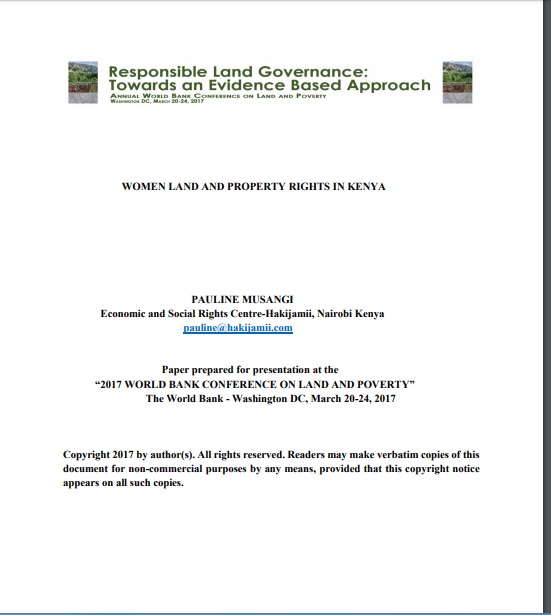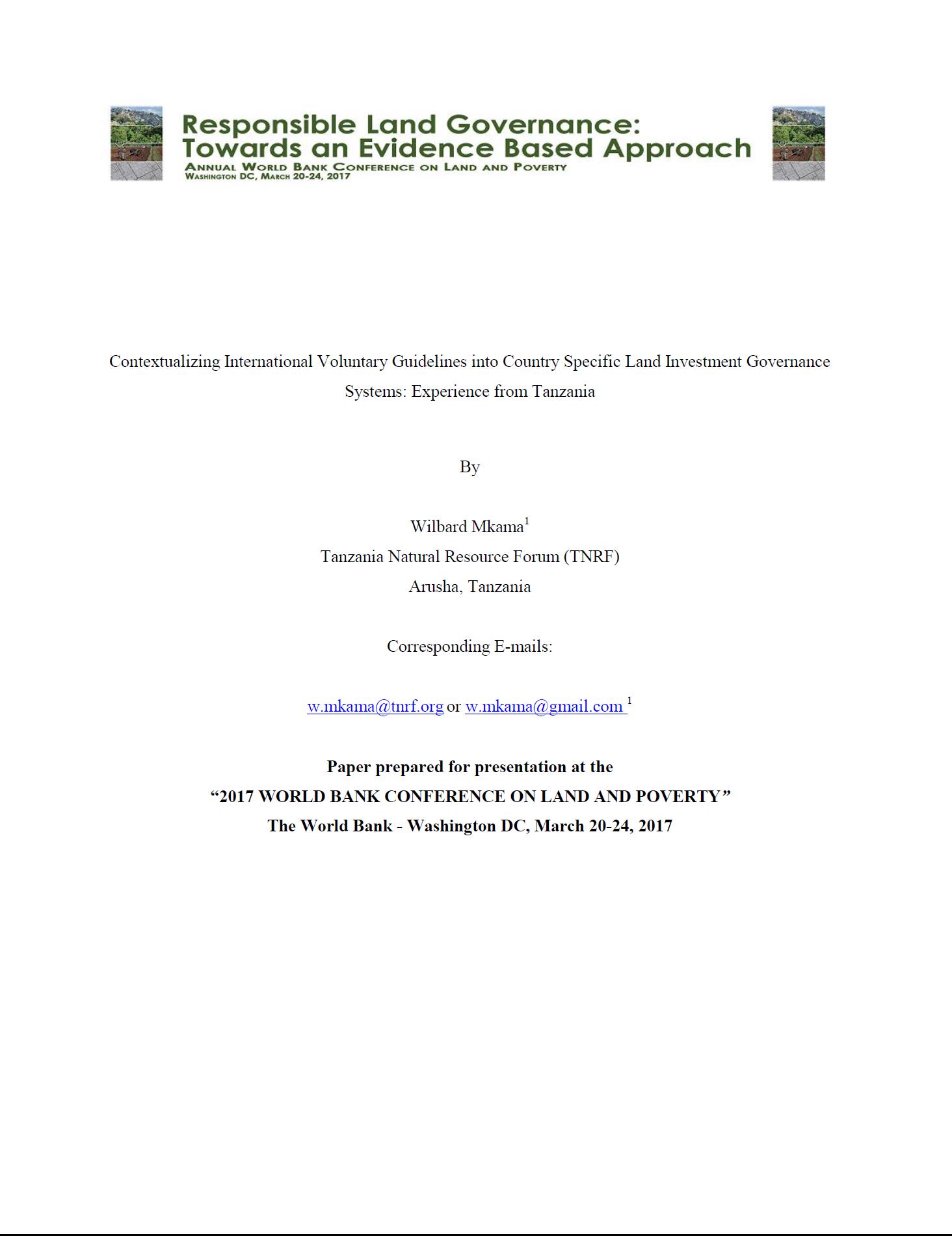The World Bank is a vital source of financial and technical assistance to developing countries around the world. We are not a bank in the ordinary sense but a unique partnership to reduce poverty and support development. The World Bank Group has two ambitious goals: End extreme poverty within a generation and boost shared prosperity.
- To end extreme poverty, the Bank's goal is to decrease the percentage of people living on less than $1.25 a day to no more than 3% by 2030.
- To promote shared prosperity, the goal is to promote income growth of the bottom 40% of the population in each country.
The World Bank Group comprises five institutions managed by their member countries.
The World Bank Group and Land: Working to protect the rights of existing land users and to help secure benefits for smallholder farmers
The World Bank (IBRD and IDA) interacts primarily with governments to increase agricultural productivity, strengthen land tenure policies and improve land governance. More than 90% of the World Bank’s agriculture portfolio focuses on the productivity and access to markets by small holder farmers. Ten percent of our projects focus on the governance of land tenure.
Similarly, investments by the International Finance Corporation (IFC), the World Bank Group’s private sector arm, including those in larger scale enterprises, overwhelmingly support smallholder farmers through improved access to finance, inputs and markets, and as direct suppliers. IFC invests in environmentally and socially sustainable private enterprises in all parts of the value chain (inputs such as irrigation and fertilizers, primary production, processing, transport and storage, traders, and risk management facilities including weather/crop insurance, warehouse financing, etc
For more information, visit the World Bank Group and land and food security (https://www.worldbank.org/en/topic/agriculture/brief/land-and-food-security1
Resources
Displaying 196 - 200 of 4906Land for infrastructure development: compulsory acquisition and compensation of unregistered/undocumented land in Kenya
Kenya’s Vision 2030 aims at transforming the country into a newly industrialized middle income country
and infrastructural development is high on the agenda to achieve this. Competing land uses and existing
interests in land make the use of eminent domain by government in acquiring land inevitable. However
most of the land earmarked for compulsory acquisition comprises of un- registered land whose interests
WOMEN LAND AND PROPERTY RIGHTS IN KENYA
While women’s rights to land and property are protected under the Kenyan Constitution of 2010 and in various national statutes, in practice, women remain disadvantaged and discriminated. The main source of restriction is customary laws and practices, which continue to prohibit women from owning or inheriting land and other forms of property.
Securing land inheritance and land rights for women in Kenya
Women face many problems with regard to land inheritance and land rights in Kenya. Individual and community land ownership do not favour women. The reason for this is that ownership of land is patrilineal, which means that fathers share land amongst sons, while excluding daughters. This practice is traditionally widespread and partly accepted although it goes against the interest of women and is prohibited by the constitution.
District Multi-stakeholder Forums: An Unexhausted Opportunity for Securing Land Rights; the Tanzanian Experience
Administration of land in Tanzania is more decentralized from the president to the village level. The law gives power to village councils and village assemblies to administer village land. The District authorities are given advisory and supervisory mandates over villages and represent the commissioner who takes overall administrative powers. Despite decentralization, institutions responsible for land administration, land have continued to be cause of many conflicts for years. Conflicts have been escalating and lead loss of lives and property.
Contextualizing International Voluntary Guidelines into Country Specific Land Investment Governance Systems: Experience from Tanzania
This preliminary study involved consultation of responsible district government officials and relevant Civil Society Organizations (CSOs) on various issues related to land and investments. Among other areas, the Southern Agricultural Growth Corridor of Tanzania (SAGCOT) was selected as a study site and study used the Focus Group Discussions (FGDs) to obtain information. Questionnaire designed reflected land investment governance process thematic areas.










